Are you facing challenges with your supervisor and unsure how to voice your concerns? Writing a formal complaint letter can seem daunting, but it's an essential step in addressing workplace issues. In this article, we'll guide you through crafting a well-structured letter that conveys your grievances while maintaining professionalism. So, if you're ready to take a stand and seek resolution, read on to learn how to express your thoughts effectively!
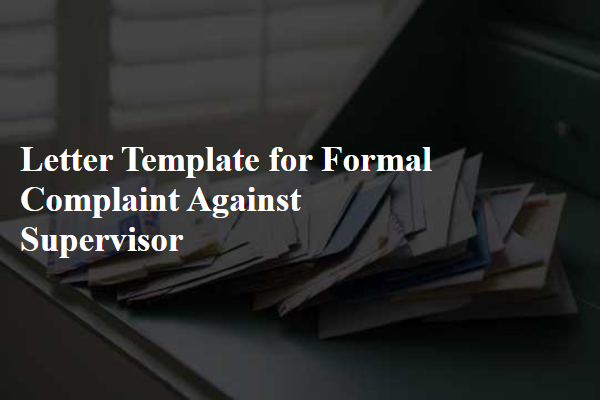
Clear subject line
In the modern workplace, effective communication is essential for resolving issues and maintaining a professional environment. An impactful formal complaint against a supervisor requires clarity and straightforwardness in its subject line. For example, "Formal Complaint Regarding Supervisor Conduct - [Your Name] - [Date]" captures the essence of the issue while including key elements such as the complainant's name and the date of the event, allowing for easy reference. This straightforward approach highlights the seriousness of the complaint and sets the tone for the content that follows. Notably, specifying the supervisor's name can also aid in streamlining the resolution processes within Human Resources or management teams.
Specific incident details
In a workplace setting, the incident involving a supervisor can lead to significant employee distress, as seen with the altercation that occurred on September 15, 2023, in the break room at XYZ Corporation. During this exchange, the supervisor, John Smith, publicly belittled employee Sarah Johnson over a project delay, despite Sarah communicating that the delay was due to unforeseen circumstances including a software failure affecting multiple departments. Witnesses, including team members and colleagues from the marketing department, noted that the tone of the confrontation was unprofessional, with aggressive body language and loud verbal accusations. This behavior not only created a hostile work environment but also undermined team morale, causing immediate discomfort among staff present. Addressing this matter is imperative to uphold workplace standards and ensure a respectful atmosphere for all employees.
Documentation and evidence
Inappropriate workplace behavior can lead to a toxic environment negatively impacting employee morale and productivity, particularly when stemming from supervisors. Clear documentation (including dates, times, and specific incidents) is essential for substantiating claims of harassment or misconduct. Gathering evidence, such as emails, recorded conversations (if legal in your jurisdiction), and witness statements can strengthen a formal complaint. Following organizational protocols outlined in the employee handbook ensures proper escalation of complaints. In instances where a supervisor's actions violate company policies or ethical standards, engaging human resources or an external agency may be necessary for resolution.
Impact on work environment
A supervisor's behavior significantly impacts the work environment, affecting team morale and productivity. For instance, instances of unprofessional conduct, such as yelling during meetings or dismissing employee concerns, create a toxic atmosphere detrimental to collaboration. Negative comments can contribute to increased stress levels, leading to a decline in overall job satisfaction. Noisy environments, resulting from constant conflicts or aggressive communication styles, hinder focus, ultimately lowering work efficiency. Furthermore, a lack of support from a supervisor can leave employees feeling undervalued, impacting their performance and retention rates. Addressing these concerns is crucial for fostering a positive, productive workspace.
Desired resolution or action.
A formal complaint against a supervisor requires clarity and specificity regarding the desired resolution. For instance, an employee may seek further training and development programs for their supervisor, aimed at improving leadership skills and conflict resolution abilities, thereby fostering a healthier work environment. Additionally, the employee might request a mediation session involving HR personnel to address ongoing issues and establish a constructive dialogue. In some cases, adhering to established workplace policies and procedures should be reinforced, ensuring all staff members are treated with respect and fairness. Ultimately, the desired resolution may also include periodic reviews of the supervisor's performance to ensure accountability and a commitment to positive change within the department.

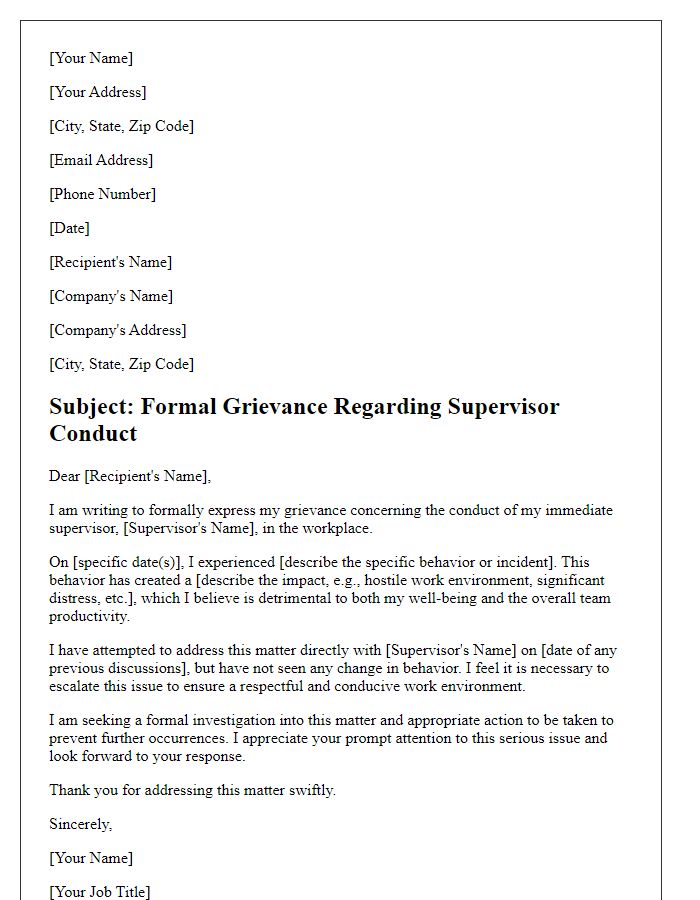
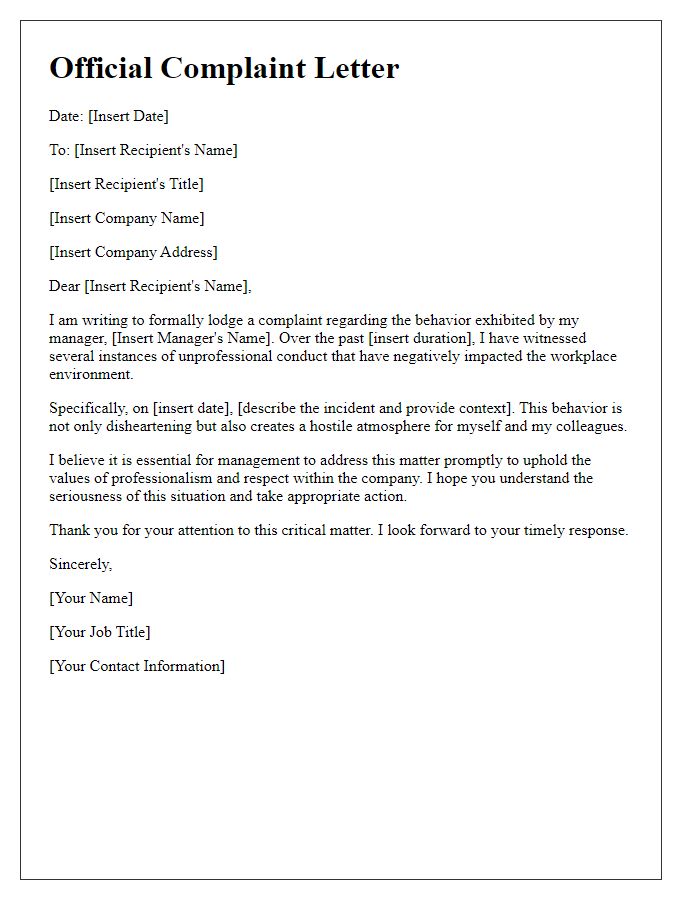
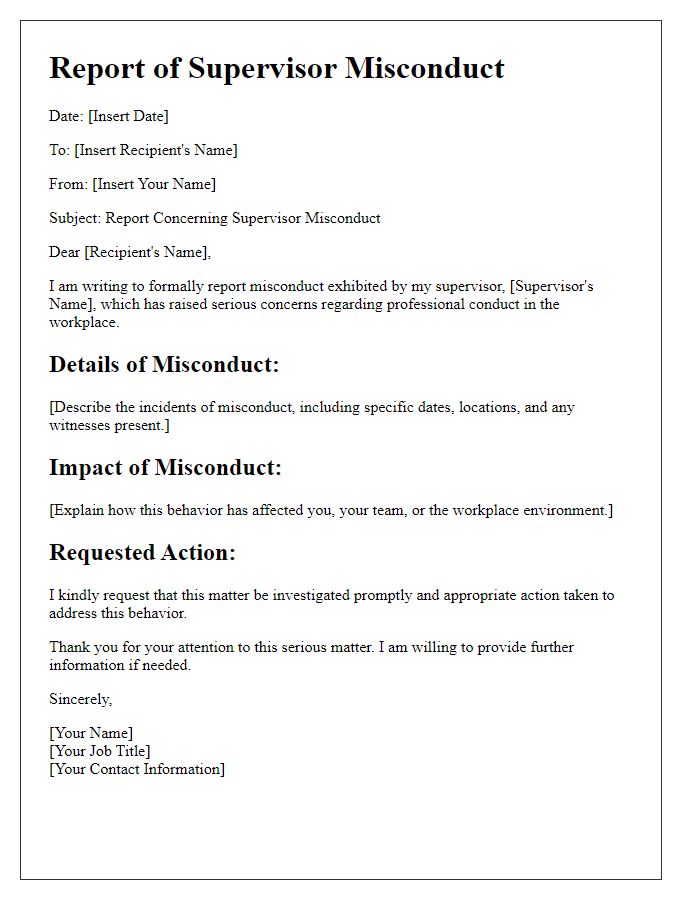
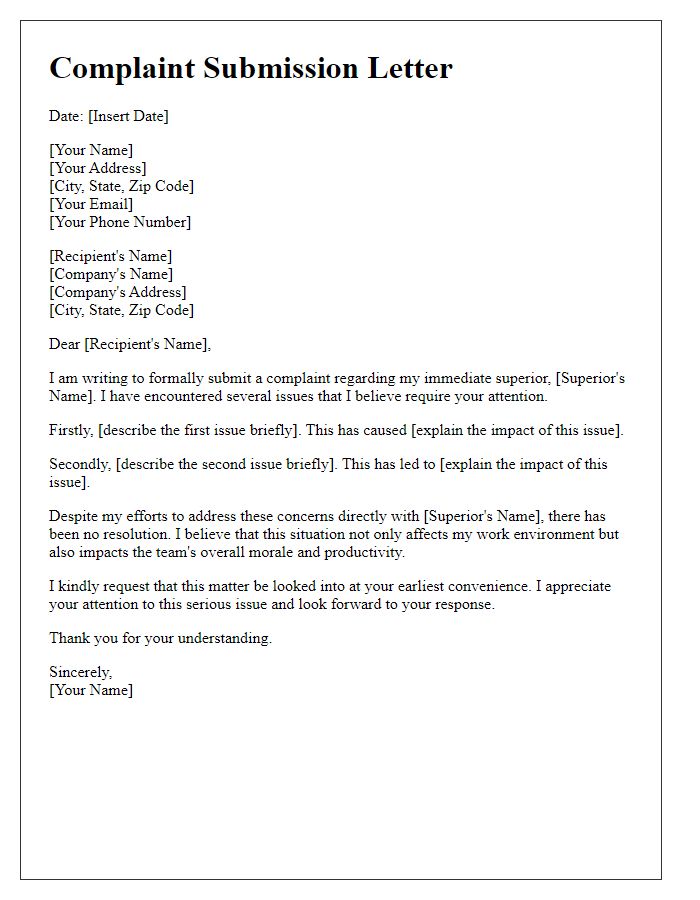
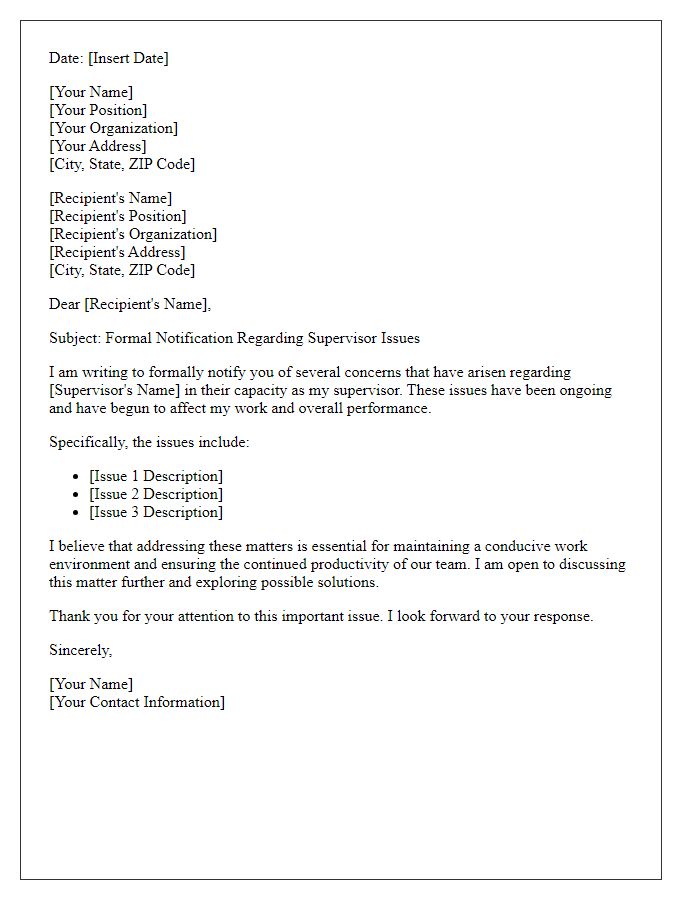
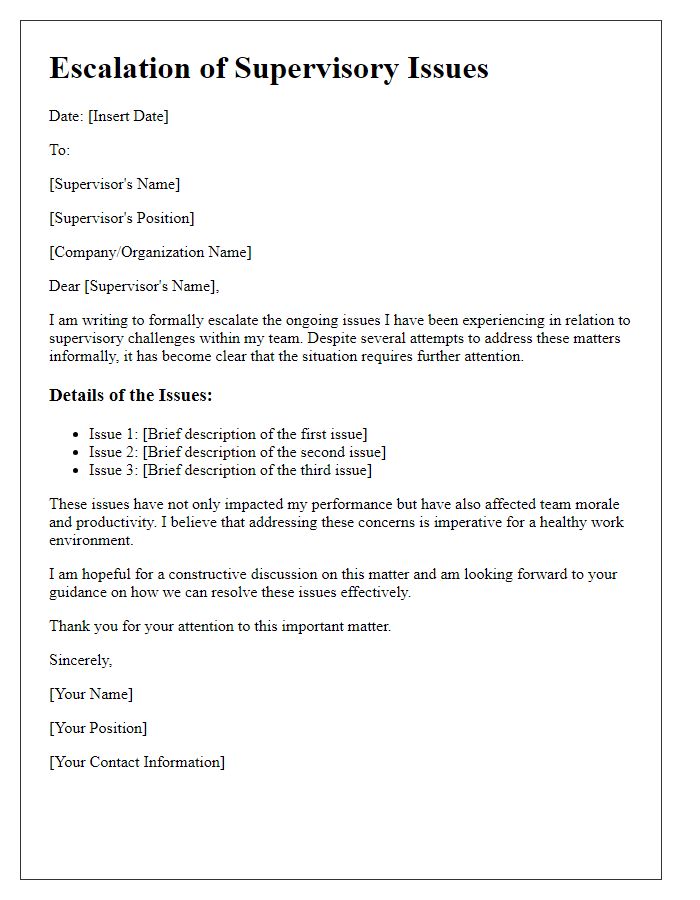
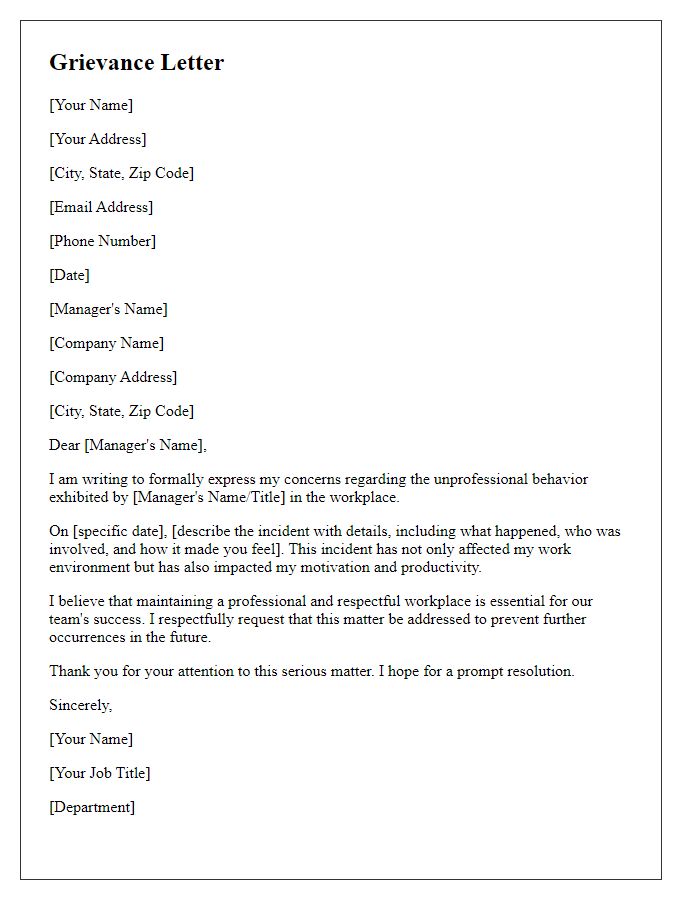
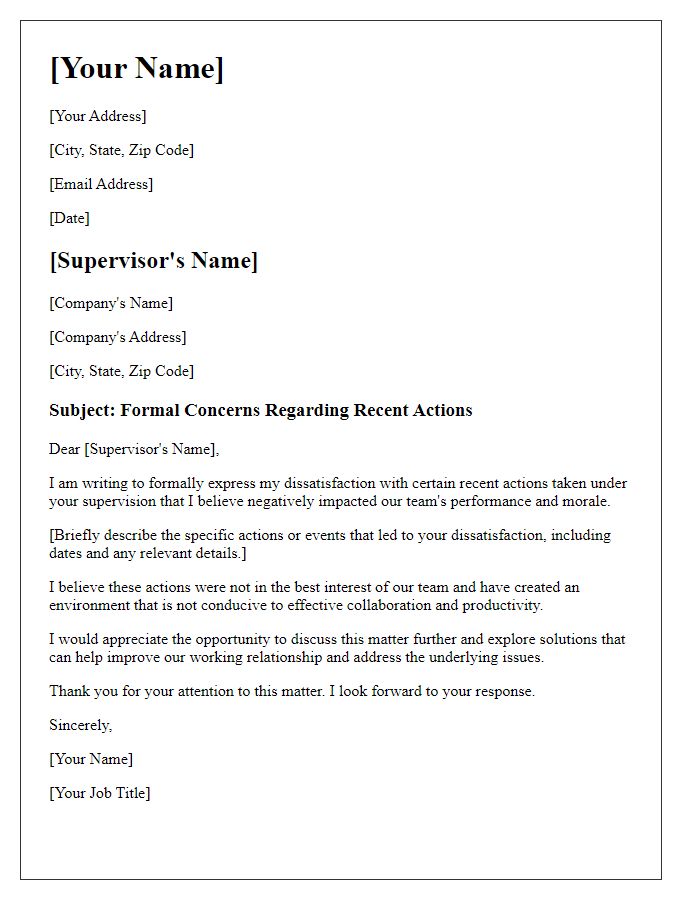
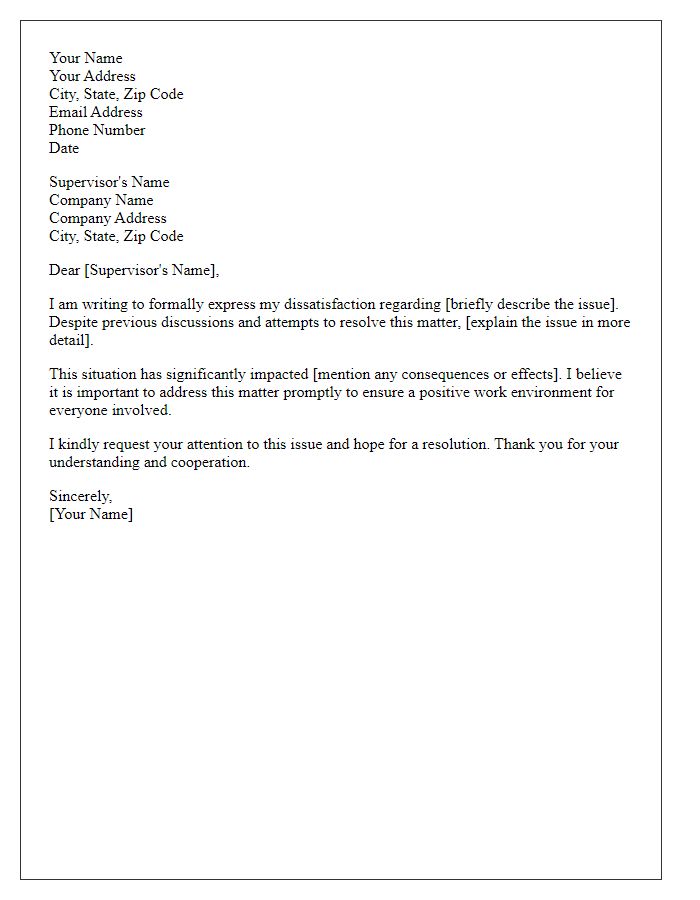
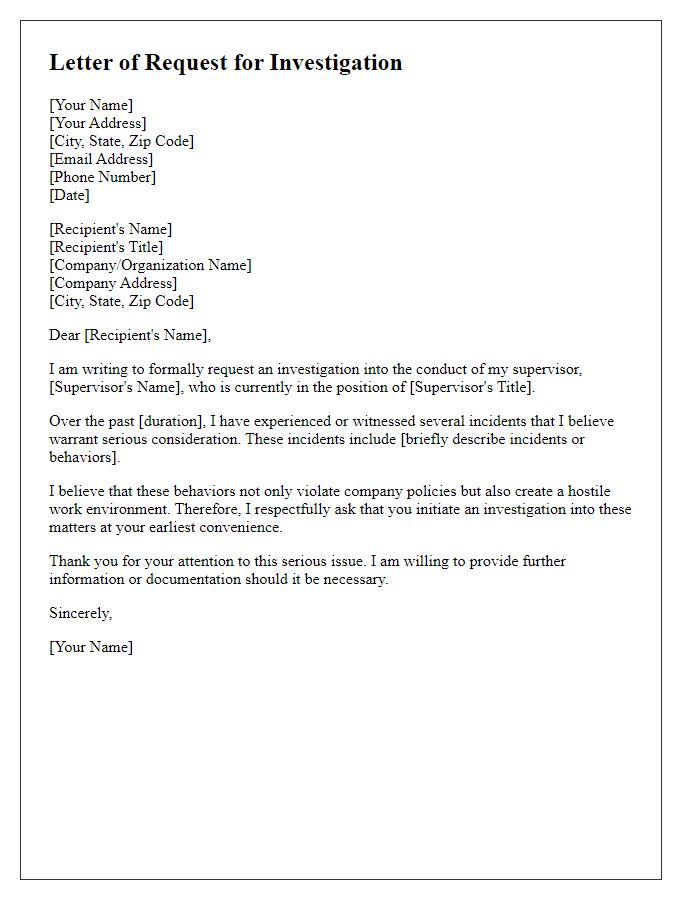

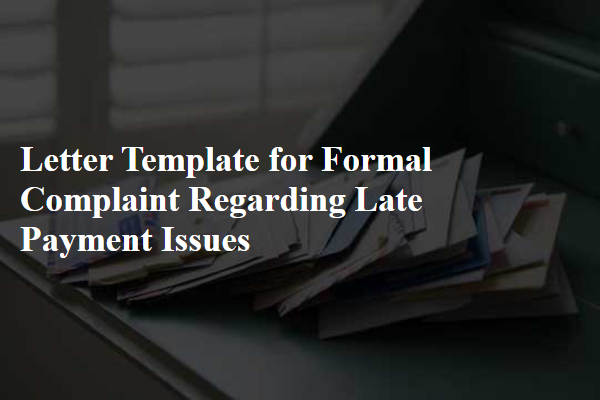
Comments